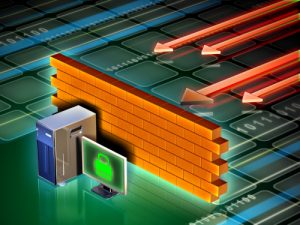 Firewalls are essential for securing your network. What is it exactly? What does a firewall do to keep your network secure? How can you use firewalls to protect your network most effectively?
Firewalls are essential for securing your network. What is it exactly? What does a firewall do to keep your network secure? How can you use firewalls to protect your network most effectively?
What is a Firewall?
A firewall is an important tool in network security. It monitors all data entering and leaving your network. Each piece of data is checked against a list of rules by the firewall. The firewall will not let data through if it does not follow the rules. This prevents cyber threats from entering your network.
Hardware and software firewalls are available. Hardware firewalls are separate pieces of equipment. Software firewalls are programs you install on your PC. A basic firewall is included in most systems, but a third-party one provided by Integrated Technology Systems can provide better protection.
Different types of Firewalls
Firewalls are available in many different types. Each is designed to protect your system differently:
Packet Filtering: This type checks each packet trying to enter the network for information and only allows the packet in if the criteria are met.
Application-Level Gate: This type filters traffic according to specific rules for each application and only allows traffic which meets these rules into the network.
Circuit-Level Gateway (CSG): This type checks whether a connection is valid, but it does not examine the content of packets.
Stateful Inspection Firewall (SIF): This type of fire wall combines features of the three other types of firewalls, and it checks both the packets' contents and their connection.
Next-Generation Firewall: This type includes all of the features of a traditional firewall, but also has extra features like application control and intrusion protection.
How Firewalls help businesses
 Firewalls play a vital role in any data security plan for a business. Here's why:
Firewalls play a vital role in any data security plan for a business. Here's why:
- A firewall is a network security tool that keeps unwanted visitors off your network. It stops threats like viruses, malware and hackers.
- Access Control: A firewall can be used to control who has access to your network. This can be used to limit or block the access of more risky areas of the internet.
- Firewalls are able to detect and prevent threats by analyzing all data entering your network.
- Network Segmentation: Firewalls can divide your network into smaller, separate parts. The problem can be isolated if only one part is infected.
You can also control the applications that can send or receive data. This will help you to protect your network by blocking potentially dangerous applications.
How to Use Firewalls Effectively
Consider these tips to get the most from your firewall:
- Choose the right type of firewall to suit your business needs.
- Update your firewall rules to keep up with the latest threats.
- Teach your team how to correctly use the firewall.
- Make sure your firewall is functioning as it should.
- Firewalls are the first line of defense for your network
A firewall is just one component of your security plan. Stay vigilant and stay up-to-date on other ways you can strengthen your cybersecurity.
Firewalls play a vital role in the security of your network. They protect your data and systems against cyber threats. You can choose the firewall that best suits your business with the help of Integrated Technology Systems.
Integrated Technology Systems
6 East 45th Street, Suite 400
New York, NY 10017
212-750-5420
https://www.itsnyc.com



